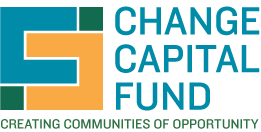CCF Grantees Improve College Success Rates
Getting a college degree is a ticket out of poverty. An adult with a college diploma earns more than double than one with a high school degree. Twenty of the 25 fastest growing city-based jobs with salaries over $50,000 require a college diploma.
But college completion remains elusive for too many young people across the city, particularly those from low-income homes and neighborhoods. Only 18.9 percent of Bronx residents, for example, have a bachelor’s degree. And, while 32.8 percent of Brooklyn residents have a bachelor’s degree, only 14.5 percent of Community Board 5 / East New York residents, where CCF grantee Cypress Hills Local Development Corporation operates, have a college degree. Additionally, just 33 percent of on-time high school graduates from families earning $30,000 or less attain a college degree.
Beyond the cost of tuition, the challenge of enrolling and graduating college for students from low-income homes includes a lack of understanding about the enrollment and financial aid processes and difficulty navigating the college bureaucracy. When students don’t have a family member who can help, they need someone to step in to fill the advisory, advocacy and encouragement roll.
A recent report, Degrees of Difficulty: Boosting College Success in NYC, by the
 |
Center for an Urban Future (CUF), funded by the Clark Foundation, found that New York City community-based organizations support students in getting into and through college, but, “New York has not fully leveraged community-based organizations into its support structure for college access and success.”
- “Students benefitting from CHLDC’s College Success Programs are on the path to success. Over the span of five years (Fall 2012 to Spring 2017), 155 students attained their Associate’s or Bachelor’s degree. Amongst the first cohort of college students, thirty-three percent attained their degrees in under six years – beating the national average (between 18%-24%) for low-income, first generation and minority students.” LINK
- And, “New Settlement Apartments College Access and Success Center furthered students’ academic success and pursuits: Of 140 students who entered a 4-year college in 2015 – 2016, 121 students or 86% are on track to complete their second year of college; 236 students received more than $2.5 million in financial aid for the 2017-18 academic year. LINK
- New Settlement Apartments College Access and Success Center participants increased earnings are 26.8 times the cost of program participation.
- CHLDC’s current College Success Services program cohort is expected to have increased lifetime earnings of $51,026,866. This is based on an increase in individual lifetime earnings of $354,930 when compared to a peer with only a high school diploma or HSE, and an increase in 143 young people persisting for at least one year.
CHLDC was selected to build a mixed-use community-oriented development with 274
 |
deeply and permanently affordable housing in Cypress Hills/East New York. The development, Chestnut Commons, development by CHLDC, MHANY and Management and Urban Builders LLC, will include classrooms, training rooms, studios and offices that will enable CHLDC to expand their workforce development, college success and youth and family services programs. The site will also include a Kingsborough Community College satellite, Black Box Theater and performing arts center in partnership with Arts East New York and a Brooklyn Cooperative Federal Credit Union branch.
